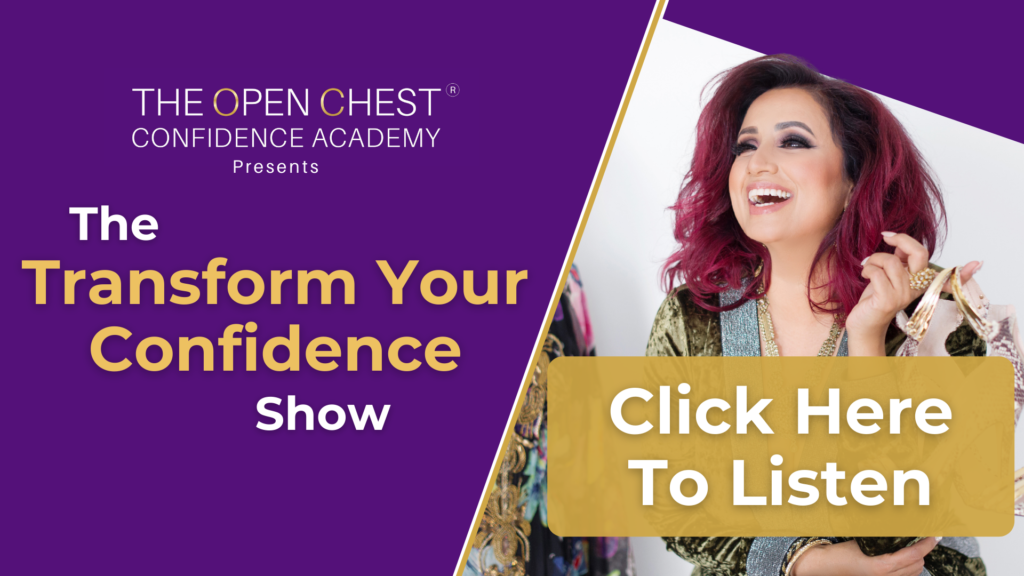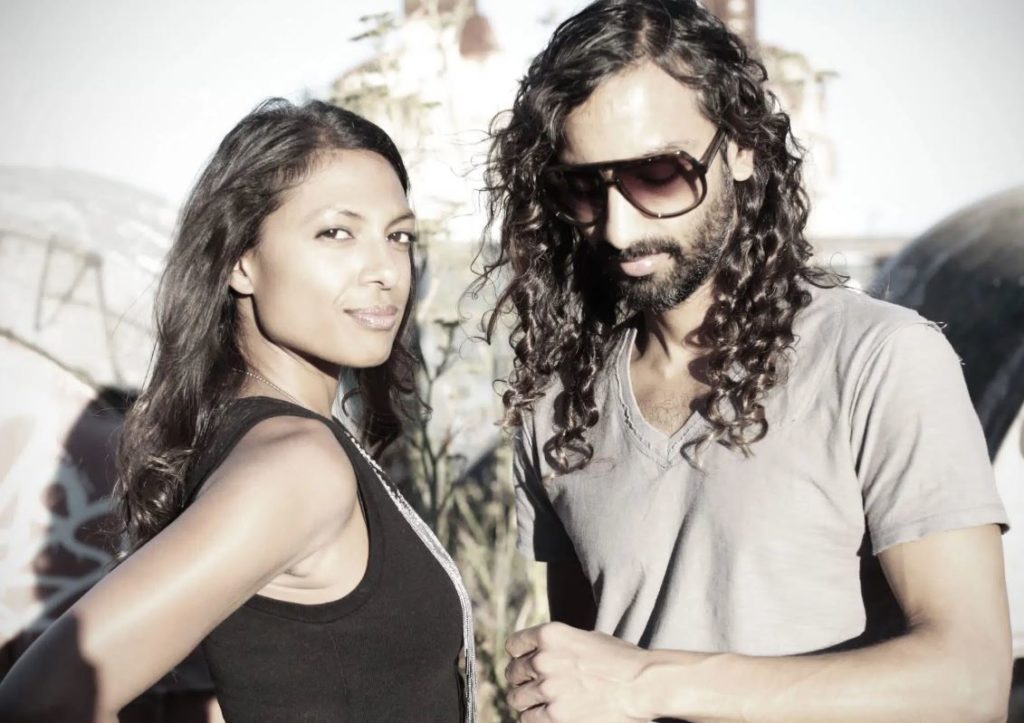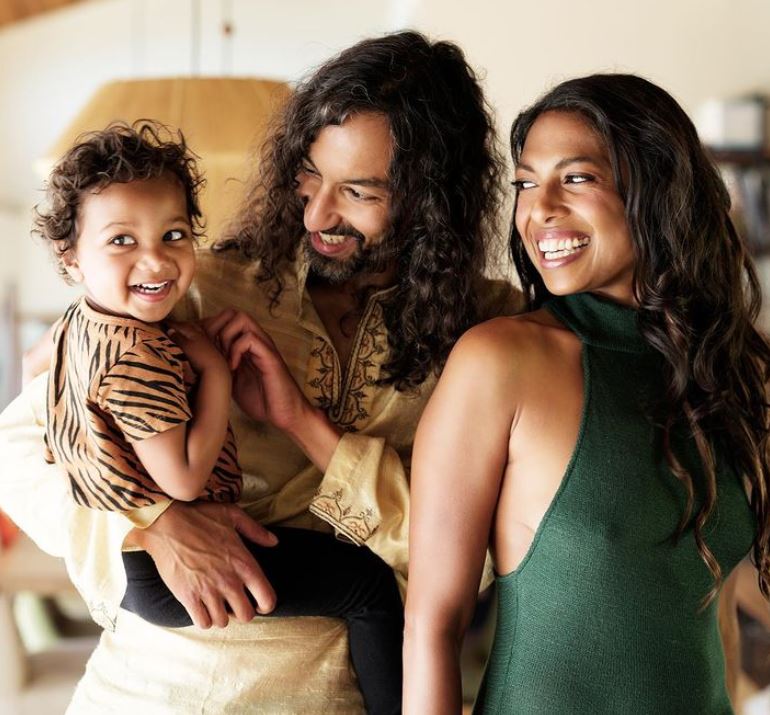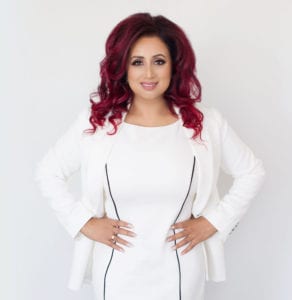Raj Girn: Meet four-time serial tech founder and entrepreneur Prerna Gupta, who is best known for her apps Hooked.
Her investor portfolio reads off like a who’s who of celebrity tech investors, with people like Ashton Kutcher, Mariah Carey and Jamie Foxx, just to name a few. Prerna has also been named as one of the most influential women in tech by Fast Company, and her writing has been featured in The New York Times, Vogue and TechCrunch, among many, many others.
Her most recent startup is called Mysterious and it’s an NFT platform powering social media on the blockchain.
Here is our conversation:

Raj Girn: Please welcome guys to this show, the fabulous Prerna Gupta. Sweetheart, finally I get you on. Welcome!
Prerna Gupta: Thank you. It’s such a pleasure.
Oh, my gosh. You know, I’m so excited to get the lowdown on your new enterprise. I’ve been following you since the beginning. But before we go there, let’s take everyone watching, listening and reading this, on a bit of a journey through your career trajectory, so we can set some context around how you’ve gone from inception to scale a whopping three times no less, and you’re onto your fourth.
First of all, before we get into that, I can’t imagine how many BIPOC women were at Stanford at the same time that you were. Can you shed light on that? I want to start there.
Yeah, definitely. Stanford was a relatively diverse place. You know, even at the time that I was there, I entered it in 2000, right after the dot com bust. And I was pleasantly surprised. I found a good community of South Asian women there and people from different walks of life. I think Stanford made efforts to try and create a diverse environment there.
But at the same time, I definitely felt like a fish out of water. And I think for me, what made me feel different and out of place was in a lot of ways my background, not only as an Indian immigrant, but also as someone coming from a small town in Oklahoma, which is where I grew up. In a lot of ways, I think my entrepreneurship journey started there. It started in high school, me growing up small as Indian immigrant in Oklahoma.

Credit: @wikipedia.org
I was so different and really I had to learn how to stand up for myself and for my beliefs and to have courage and conviction in ideas that were different. And that was really where it began. And when I came to Stanford, I thought I was going to find my place. And in a lot of ways, I was a fish out of the water all over again. And that was because so many of the kids that went to Stanford went to really amazing schools and had this educational background that I didn’t have.
And so I found myself, again, kind of thrown in an environment where I had to fight for myself and I had to work extra hard to get to a place where I could thrive. And it was an incredible journey. And in the end, I ended up graduating Phi Beta Kappa. I found a way to get there, but it was tough. It was definitely was an experience.
Is there any advice that you would have for aspiring women? I’m not just going to say women from our community, but women in general to be able to deal with the kind of challenges you dealt with. First of all, being a fish out of water, your years in high school, and then moving into this environment. What are some of the things that you learned there that perhaps would be beneficial for them to know?
The biggest thing is to believe in yourself. First and foremost.
Yes.
Always. You are going to feel that when you walk into a room, when you walk into a classroom, when you walk into a frat party. Whatever it is, you’re not going to look like the other people there. When I got the Stanford, I remember my roommate who is from Malibu and I love her, we’re still best friends, but she told me that I had a thick accent. And I didn’t know that. I think it’s gone by now, I believe, but I was horrified.
Well, I don’t hear it at all.
It’s little things like that. Where you’ll get those signals, and you just have to dig deep. You’ve got to believe in yourself, believe that you belong and that you have something special to offer and that your differences are your strengths.
“You’ve got to believe in yourself, believe that you belong and that you have something special to offer and that your differences are your strengths.” ~Prerna Gupta
Yes, yes, yes, yes, yes. To all of the above. I completely agree with you, having been on a similar journey of being a fish out of water, but in a different context, I totally get what you’re talking about. It fundamentally comes down to this inherent internal belief that you deserve this. You really know that you deserve this.
So let’s talk a little bit about the fact that when you were at Stanford you got to know and really decipher that game, so to speak. I’m interested to know how the economics degree factored into you getting into the tech startup world. Was there a link or did it come from somewhere else?
Yeah, there is definitely a link. When I got to Stanford, I had no idea what I wanted to study or what I wanted to do. Both my parents are doctors, so that was kind of an obvious like, okay, I’m going to take chemistry and bio classes.
And I knew I didn’t want to be a doctor, but I thought maybe I’ll do biomedical engineering [which is] very, very Indian. And I took some of those classes and I liked them, but I didn’t love them.
I just started to explore and I took an economic science class and it just kind of blew my mind. And what really fascinated me about economics was that it explained so much about human behaviour and how humans respond to incentives.
And that was really was the beginning of my intellectual journey as an entrepreneur, even though I didn’t know it at the time. So after taking a few econ classes, I decided just to major in economics because at the time I was interested in economic development and economic empowerment.
I majored in econ, took those classes and continued to grow intellectually in that way. And then it came time to figure out what am I going to do with my career. I explored different options and I ended up getting a job initially as a management consultant at a company known as Monitor Group.
And I did that because I just became interested in solving business problems that again felt intellectually interesting to me. But after a few months at Monitor, I realized I didn’t want to work in a corporation.
I didn’t want to help other corporations, you know, large corporations, and be a cog in the wheel. I really wanted to do my own thing and I wanted to start my own business. So to get closer to entrepreneurship, I jumped — after six months — into a C job and became a venture capitalist and I was there for six weeks.
I hated the culture. I hated just everything about it. And instead I was like, ‘what am I doing?’. ‘Why am I wasting my time? I want to be a founder’. I had an idea at that time and I was like, ‘just stop willy nilly and go do it’, you know? And so I quit my second job in less than a year after graduating, and I started my first company.
Oh, my gosh. And the rest is history, as they say. Prerna, I have to ask you this, because I’m hearing a pattern as your story is unfolding. You know how whenever there’s been a challenge per se, you’ve been very mindful as to, ‘okay, we need to overcome this now’. ‘How do we go about overcoming this?‘.
And I feel that parlayed beautifully over into your decision, that fundamental decision between working for someone and working for yourself. Can you shed light on why you decided to take on the entrepreneurial route versus working for someone? Because we know there are pros and cons with both with being an entrepreneur and being a founder and being a tech founder. Those are some insane challenges. So talk to me about that as my question is more aligned with the mindset piece around this. .
I think for me, it was really about feeling like I was maximizing my potential and making the most of my time. And I work for me. When I’m working for other people I don’t feel that, I feel that I’m operating at 80% or even less than that.
And it’s hard for me to explain why that is, but it’s just when a structure is being handed down to me and priorities are being handed down to me, I’m not able to make the most of of my effort and my time.
Is that how you feel?
That’s how I feel. I think it was driven primarily by that. And then kind of on a day-to-day basis, feeling that frustration of [the fact that] I could be doing more and I’m being held back as an individual. And then in addition to that, I’m a creator. I always wanted to create things when I was young. You remember, ‘what do you what to be?’ — those memories? You go through different phases. But the three things that really stuck over the years are: I wanted to be an inventor, I knew I wanted to be a writer, and I wanted to be a singer. And so for me, my way of doing all those things was to become an entrepreneur, and to create products that help other people do these things.

You know, it’s interesting because the three points that you just said is a beautiful parlay into the discussion about Mysterious. But before we get there, I want to ask you this: what kind of characteristics have you found a person needs to unlock to be a successful entrepreneur? Seeing that you’ve done it so many times, and even though it’s been in the tech space, it has been in different silos. I’d love for you to shed light on for everyone.
Definitely. I’ll tell you my top three.
Number one is curiosity. It’s really important to be the sort of person that just wants to ask questions, wants to know the ‘why’ behind things, wants to learn new things and thrives in that in that kind of feeling of ‘I don’t know the answer to this and I want to go find it’.
Number two is basically [having] an incredible ability to adapt. I think adaptability is one of our superpowers as humans. One of the reasons that we are the most successful species on the planet is because when our environment changes, we find a way to adapt and to thrive in that new environment.
And as a founder, you are constantly having to adapt to the way the world is, when you start your company, how it is, as you as you progress and as your journey progresses. And the founders that are the most successful are the ones that are great at adapting.
Number three is perseverance. You are going to experience failure much more often than you experience success as a founder.
And, you know, in the press and in public, I always see the success stories. But the reality is every successful founder is failing 90% of the time. And it’s about just having that perseverance and not feeling like a failure is the final answer. And just understanding that failure is just a point on the way to success. It’s an opportunity for you to learn and get better.
“Failure is just a point on the way to success. It’s an opportunity for you to learn and get better.” ~Prerna Gupta
Are there any failures that you can think of that really stand out for you, where you say to yourself, ‘God, if that failure didn’t happen, I wouldn’t be where I am today’. Does anything stand out for you?
There are many, but let me give you an example.
Okay.
Hooked is a fiction storytelling app, one of the biggest storytelling apps in the world for teens and millennials. We reach hundreds of millions of people around the world with these stories that we put into people’s social feeds. And when we first launched the app, it was an app working with professional writers. It was a closed app.
We launched a handful of stories and they were doing very well. But we started to get these requests from our users to write their own stories. And so our investors really encouraged us to go down that path like, ‘okay, maybe you can be the Instagram of stories’ and be a UGC (User-Generated Content) platform. Everyone who launches an app wants to be the next Instagram for X.
And so we were like, ‘Okay, yeah, let’s go do this’. So we created this UGC where users can write their own stories and the app is really slick interface, a chat-based interface. And we launched it and we worked on it for six months and we had a few thousand stories written from our users and we got tens of thousands of users in the app.
And what we found was the vast majority of them were actually just spending their time reading stories written by professional writers. And we had invested six months at this point developing the product [with] all of this stuff [that] our investors were super excited about it. But when we looked at the data, the data was staring us in the face and it was saying, focus on professional content, that’s actually what people want.
Even though some people told you they wanted this other thing, that’s not what their behaviour is telling you. And so that was a light bulb moment. And we had to accept failure, even though we had invested all of this time and effort into this other product direction, it was failing. That was such an important fork in the road for us. We closed. We shut down the UGC product, and doubled down on the professional content. And that was really the moment where [it] started to take off.
Oh, my gosh. You know, this is such a great story to illustrate how you have to really balance the equation between innovation and demand. And this is the big lesson, I think that should be the big takeaway for everyone here.
Can you give us a little run-through of your journey with the companies that you’ve founded, kind of high level, why you chose each of these specific ventures, what you learned from them, and when did you know that they were ready to be exited, which is something a lot of companies get wrong?
Definitely. I’m on my fourth major endeavour and I started 18 years ago. I co-found all of my companies with my husband Parag. We met at SAP and have been partners in life and business ever since.
I think that’s another podcast to bring you and your husband on to talk about how the heck did you make that work?
Yeah, we love that. And plenty of marriage advice, you know, for free.

I’m definitely bringing you back, girlfriend.
So I’ve done four and my first one actually failed. So it has not been just successes all the way along, as I’ve mentioned. The first one started in 2005. It was a social networking site for Indians called the Yari.com.
And I remember that. It was so long ago. It was the beginning years of when I launched ANOKHI magazine. So I remember that.
Oh, yeah that’s right. That was one of our first little pieces of press. We were just starting out. Facebook had just raised a $12 million series. So most people in America were still super skeptical of social networking. But I was like, ‘this is going to be huge all over the world and we got to go do this in India’.
And so my husband Parag and I moved to India, [to] try to raise funding for everything. It was so early, it was so hard to raise funding. People did not take us seriously. People thought no one in India is going to put their picture online, like it’s going to be totally scandalous. No one’s going to do this.
And so it was just hurdle after hurdle. We actually got a couple of million people onto the site and got them to start using the site, but it was just really hard to get things off the ground back then.
And you were before your time, with that product.
Before our time. We kept trying and trying and trying and eventually we actually tried for four years. Eventually Facebook came in. It took over all of India completely. We pivoted to a dating site. And again, we’re before our time with online dating for Indians.
And long story short, after four years, I made a very difficult decision to shut the company down and start something new. And so in that case, it was the decision to exit as manager.
I remember that one. That was the one that changed the game for you guys, wasn’t that right?
That’s exactly right. That was the game-changing moment. And a few months after that, we started getting acquisition offers and we ended up taking one with Smule and joined Smule as as executives and as co-founders, essentially, even though they were already had gotten their start at that point and were quite successful themselves. And it brings much more funding than us.
Absolutely. I mean, my gosh, like over a billion consumers. That’s insane. The trajectory of your journey is very interesting because you really took advantage of every aspect of learning, whether it took you to business success or not.
Everything just kept taking you to the next journey that you needed to be on. And that’s why I’m really interested to know why you chose something quite different with Mysterious.
I am just going to remind everyone watching, listening and reading this, I am chatting with Prerna Gupta, who is a four-time serial tech entrepreneur, and she’s done some massive, insane stuff out there, quite rare in her field as a woman, even more, rare as a BIPOC woman. I’m going to ask you those questions. You know that I got to go there as well, Prerna. But before we do, let’s talk about this new venture that you’re in right now. I’m talking about Mysterious, which is an NFT platform. Is it different from other NFT platforms out there and if so, how?
Mysterious is very different from other NFT platforms in that the focus is not actually the NFT platform. The NFT is a gateway into a different kind of mobile social experience that we’re developing.
So our vision for Mysterious is to create a new social media app in Web3. We want to reimagine social media entirely, and we believe that web-to-social media apps are broken. They are actually making us sick as a society.
And that Web3 and blockchain technology offer a very interesting opportunity to fix this and to improve how we socialize online. So that’s the opportunity we’re going after. And NFT is our ticket into the communities that we are developing in this app.
So it’s kind of like a lead magnet into getting people in, basically. It totally makes sense. You said something there that I feel is very important for people to understand, especially those of us who aren’t of the tech space. What is it that you feel is damaging about the Web3 space that people need to know about?
Web3 refers to blockchain technology and the startups that are being developed around blockchain and this belief that there’s a new kind of internet to be built and that will revolutionize it. It will be another step, a function [of] change in how we do things online.
Web2 is the era before it, basically era of social media and Web1 is the original era of the Internet. So there’s Web1, Web2, Web3. It’s the Web2 social media apps that are breaking down and harming us. And [to find out the] reason why, is really to understand this:
Think about how we’re wired as humans. We are wired for in-person interaction. Of course, that’s how we’ve evolved and we seek out social signals from each other in person. Signals like a smile, a hug, the sound of laughter, the smell of food that someone made for us. The sound of music that we make together.
“Think about how we’re wired as humans. We are wired for in-person interaction. Of course, that’s how we’ve evolved and we seek out social signals from each other in-person. Signals like a smile, a hug, the sound of laughter, the smell of food that someone made for us.” ~Prerna Gupta
Now that we are interacting primarily online on Web2 social media apps, we continue to seek out these signals, this kind of social gratification constantly. But what we get back in return are likes and loves, follows, retweets and frozen selfie pictures of each other.
They’re super fake. And there’s this great mismatch now between the types of signals that we’re seeking, which are very high value — strong signals like hugs and smiles — and what we’re getting back, which are these very weak and shallow signals. And I believe that mismatch is what is making us collectively very sick.
Blockchain offers us an opportunity to change this. Blockchain, I believe, is fundamentally a social innovation, and its most lasting impact will be enhancing how we socialize online. We are increasingly socializing online and having online interactions, but they are too shallow and it’s almost like with Web2, it’s all of us shouting out: ‘Listen to me. Listen to me’.
That’s not how we socialize. We socialize in small groups, in deep ways. And I believe that blockchain will be about smaller group communication and allowing us to go deeper with each other and focusing on meaningful conversations in small communities centered around activism.

It’s interesting you’re saying that because we hear that a lot with parents and their kids. The fact that a lot of children aren’t developing conversational etiquette, aren’t developing social interactive nuances, these types of things that were really important for our parents to teach us. Those things are starting to be missed because language has now become a lot of jargon and emojis and all this stuff similar to what you mentioned.
Coming back to Mysterious, what successes have you seen so far? Or perhaps a better question would be what have you seen so far that’s telling you that you’re on the right track?
The biggest success has been in our initial community that we have started to develop is music because we believe that music is one of the most fundamental ways in which we bond as humans. This project is about bonding. It’s about social bonding.
Going back to those terms, Web1, Web2 and Web3. Web1 was about social connection. It was about simply connecting us through the Internet and allowing us to exchange information through the Internet. Web2 was about social interaction, getting us to interact with each other through these social media apps, through likes and loves and followers and retweets. And Web3 will be about social bonding. Actually having us bond as humans through communities, and music is one of the most fundamental ways in which we bond as humans. And so we’re starting with music. We have created this founding community of artists that are experimental musicians around the world. We represent many different types of music cultures from experimental, computer, abstract music to album.
“Actually having us bond as humans through communities, and music is one of the most fundamental ways in which we bond as humans.” ~Prerna Gupta
We have created this community of artists and their very ardent fans and we are bringing them together in this new social app that we are launching next month, the Mysterious app. We are creating this new kind of experiment where we facilitate a different type of conversation.
It’s not just about an artist making an Instagram post and everyone coming on and be like, ‘Wow, that’s amazing’, with these kind of shallow — very nice — very shallow comments. We are creating a new feature set that gets them to actually interact in a way that’s meaningful for not just the fans, but for the artists as well, and getting them to interact together in a way that creates bonding.
I love that. And that’s the central focus I’m hearing you say consistently throughout this. I want to ask you this: I feel you’ve answered this question, but I feel it needs encapsulating. What’s the value proposition for clients and consumers here?
The value that we see in Mysterious is in making us feel loved, honestly, and helping us understand that there is love out there for us. To help us see the joy, celebrate the joy and love of life. We are more connected than ever today, but we are lonelier than ever.
This can’t be how it ends. This can’t be how human civilization interact with each other. It’s got to be deeper than this. And that’s really what we are trying to create; a new kind of world in which we can continue to get all the benefits of the Internet, which is that we can connect with each other all over the world. And that’s amazing. But actually learn to share love and joy and real human bonding.

I love everything about that. It’s everything that people should be supporting. So for people out there who aren’t fully clear on the difference between the world of communication online versus what you’re talking about, how is coming into your world with Mysterious going to help create more value for the consumer?
So let me explain what the feature set is in Mysterious. And I think that helps make it more concrete with Mysterious. To enter the app, you need to own an NFT from one of the artists, one of the creators in the platform. That NFT gets you a ticket into the community of people, in which the artists and the other NFT purchasers are part of. And so this group of musicians and people who purchase their NFTs over time will expand into all different kinds of communities, from bread baking to meditation, anything you can think of. But right now, it’s experimental music.
When you come in, you’re put into this forum. And the biggest distinction between what’s out there today with what we’re building with Mysterious, is only one person can post at a time. So you are seen as the speaker by other people in the community. And when you are the speaker, you’ve got the mic, you make a post, you have 24 hours to make a post. And once you’ve made your post, everyone else in the community has 24 hours to to view the post and and to leave a thoughtful comment.
And so the idea is we’re trying to get everyone to slow down, to focus and to interact in deeper and more meaningful ways. We are trying to recreate how we socialize in real life, which is in small groups. And we give people a chance to speak one at a time. And we listen and we contribute to that. We comment back on what they’ve said in thoughtful ways.
“The idea is we’re trying to get everyone to slow down, to focus and to interact in deeper and more meaningful ways. And we are saying one person speaks at a time. We’re trying to recreate how we socialize in real life, which is in small groups.” ~Prerna Gupta
That is the kind of the value we’re trying to create, so to speak, is get people to slow down, focus, really pay attention to each other and listen to each other and give back something meaningful.
Where can people grab this app?
So we are launching next month. It will be on iOS and Android. and we will have a Web version soon after that. I would love anyone who is listening to check it out. You do need to own a Mysterious NFT to be part of it and you can find out how to do that at mysterious.xyz
Oh, my gosh. I love that. I’ve got to ask you this, what’s the purpose of the name? I’m just mysteriously curious.
It goes back to that thing that I said about one of the most important qualities of a founder. And that’s curiosity. I think that one of the greatest joys in life is really exploring the mystery. The mystery of life, the world and the human condition. Approaching life and our human connections from that sense of curiosity and finding joy and understanding in the mystery behind another person, the mystery behind the art that they are making, and approaching the conversation to do that as opposed to approaching it from how we we do today on our social media apps, which is shouting on top of each other and trying to get everyone’s attention. Let’s flip that around and let’s ask each other questions and try to understand their mystery.
Absolutely. You know, it’s funny because I always call social media ‘soap box media’. That’s literally what it is. We all know this. Right?
I love that.
I want to ask you this because I have you and I can’t think of anyone else I could ask a question as fundamentally as important as this. There are so many tech worlds and buzzy products out there. We are being bombarded with them. And everyday people like me have to learn to navigate them. What do you foresee as the future of these tech worlds, buzzwords like Bitcoin, A.I., NFTs, the Metaverse? What do we need to know from your perspective?
I think the biggest thing to understand is that we are at the cusp of another major revolution in how we live our lives. And that revolution is being driven by the intersection of all these things that you mentioned, blockchain, which most of us think of as Bitcoin, the currency. But it’s really blockchain technology that underlies Bitcoin and Ethereum, and all of these innovations in that space, and NFTs are a part of that of the blockchain innovation.
So it’s blockchain, it’s artificial intelligence or machine learning. The third thing that I will add are the innovations that will start happening in biotech. Basically allowing us to start changing our own bodies and interfacing more deeply with technology, like artificial intelligence, like the Internet, like hardware, computers and eventually blockchain. It’s the intersection of these incredible advances happening in all of these spaces. And they are going to start to intersect in mind-blowing ways over the next decade’s boom.
Then you hear the term ‘Metaverse’ and Facebook has renamed itself Meta now to start to build towards that future. And when we think about the Metaverse, we think ‘okay, we’re all just going to be these vegetables laying in bed connected to an Oculus or whatever’. But I think it’s not going to be that way. It’s going to be much more integrated into our physical lives. And we’re still human. We’re still going to live and breathe and move and all of these things. But what it’s ultimately going to lead to, is us allowing —and the part that I think is the most exciting is — allowing humans to connect in deeper ways.

And I think the version of the Internet that we see right now has taken us away from that. It has made it harder for us to connect in deep ways. And that is what’s broken. I believe that this is just an interim state. This is not where we’re going to end up. Ultimately these technological innovations will allow us in the long term to actually connect in deeper ways. I want to give you a very specific example of how I think in the far future — not today, not tomorrow — but ten, 20 years from now, technology will allow us to do that.
So when we communicate, our brains have a certain speed at which they can process information. There are certain types of information that we get, our brains are able to process a little bit more quickly or a little bit more slowly. So, for example, sound: we process sound faster than we process visual stimuli. And there’s a physical limit. Over time, as these different types of technology start to merge, there’s a possibility that we could increase the physical limit with which we can process signals from each other.
And so there’s a really exciting possibility that that allows us to actually connect more deeply to each other and understand each other more deeply. And that’s like a crazy sci-fi idea, but it’s not crazy. It’s going to be possible in the future. And in the Metaverse.
I love that Prerna! As you were talking about that, the visual that I kept getting was going back to a kind of ancient spirituality, and learning certain things that we aren’t taught today. It’s like a lost art, so to speak. And that is the deeper, layered communications that is based on science and is based on spiritual connection within self and then with others.
It’s funny because you’re talking about all this as it relates to things that we’re going to create, that’s manmade. But it’s interesting to see how we could learn from some of the ancient hidden art that we’ve forgotten and moved away from. What are your thoughts on that?
I love that idea. It’s so perceptive and just I agree with that wholeheartedly. And I think you’re right. We have all that power inside us already. And in a way, all this technology has just taken us further away from being able to connect to it.
And until you and Mysterious came along — and this is why this conversation with you is so paramount and so important. Oftentimes it’s the ignorance of not knowing the purpose and the advantages of platforms that lead us down a road of doing things with it that are limiting or potentially even harmful. And that’s why I really want to ask you this question:
What advice can you give everyone, normal people, on how they should adapt to these tech-centric lifestyles so that they’re actually being used appropriately? And I when I say ‘appropriately’ what I mean by that it’s being used to enhance their lives. Because there’s the fine line between drug abuse and positive stimuli to take your experience as a human to a whole other higher vibration. What are your thoughts on that?
I love the direction that this conversation is taking because it’s the most important thing. And this is my life goal with everything, with every product I launch is to help people get there. It really comes down to learning how to focus and to still your mind, and to still your heart, and your spirit. And I think that’s one of the things that our culture is, that we’ve been taught in our ancient spiritual practice is really about this.
And it’s something that I think that I feel that South Asians have something special to give to the world, and that’s to teach, help and teach that art of focus. Technology is so powerful and so incredible, but you have to learn how to be able to use it from a place of discipline and to use it in a way that allows you to enhance your focus as opposed to become a distraction.
Actually, I had a baby, our second child, six months ago.
Oh, congratulations!
We named her Lexi. Yeah. We spell it Lakshya. And I think it is the single most important thing to teach children today and to teach ourselves the ability to develop, is focus. And that’s what we’re trying to do with Mysterious is to get people to just slow down and focus a little bit more. But it comes from within. No app is going to make you do it. You have to learn that ability yourself.
“The single most important thing to teach children today and to teach ourselves the ability to develop, is focus.” ~Prerna Gupta
It’s interesting because I feel that through our conversation today that perhaps there’s an opportunity for you to even think about expanding the thought process on how to help people navigate positively through their experience with your app and maybe think about it from a humanistic, a spiritual, a connectivity perspective rather than, ‘oh, here’s another app’.
I really do see a great opportunity here, folks. If you are watching, listening or reading this, you know that you’ve got to go check out this app. It is everywhere where apps are sold. By the time this interview comes out, we will be around the corner from the launch of this. Please do go and check it out. Prerna, one more time, can you let everybody know exactly where they need to go? What is the URL you gave earlier?
It’s Mysterious.xyz. So instead of dot com, it’s xyz. It’s kind of a cool domain for web. If you have any issues at all, you can find me on Twitter or Instagram. I’m just at Prerna Gupta on Twitter and Instagram.
Brilliant. And before I let you go, I’ve got to tell you this. I feel that having someone like you on this show who is quite a rare phenomenon, as a BIPOC woman in the tech sector, putting out this whole kind of new platform, there’s so many spiritual undertones that I feel are happening here.
As we’ve been talking about this, what have you experienced? I feel we need to get more like-minded people in the game of creating apps that are going to benefit people’s lives and help them vibrate on a much higher level. Let’s talk a little bit about that.
What have you experienced as challenges unique to women founders versus men that makes the journey that much more challenging for women? I’m saying this for anyone out there who doesn’t know; only about 2% of investment dollars goes to female founders. That is just insanely ridiculous. How do we encourage women to get on this bandwagon, who have these tremendous trajectories of what they could bring to the world in this realm?
It’s such an important question, and you hit the nail on the head. But the hardest thing as a female founder is fundraising. It’s so much harder for women. And it continues to be harder for women. It’s crazy. I’ve been doing this for 18 years. It has gotten easier over time, but it’s still really hard. At every stage, I have to overperform. The bar is so much higher for me than it is for my male peers to go raise the same amount of money. And then I’m going to be raising at lower valuations.
That’s just the reality. And it doesn’t change. And the reason why is because it’s such a relationship-based thing. It’s a gut-driven decision that these VCs are making. You see headlines all the time about these male founders that are raising billions of dollars committing fraud. Their companies crash and burn and then they turn around and go raise another billion dollars again.
And it’s because they’ve been hanging out the whole time on yachts with these old white men going to parties and hanging out and getting high with them. And they can turn around and make a phone call and they’ll write them a big check. That’s how the game works. And it is incredibly difficult to break into that game as a female founder, especially as a female founder of colour. Some women can go do that. And more power to you. I’m out there fundraising with my husband.
To each their own sweetheart. We’re not here to judge.
Not here to judge. Go, go, go. Whatever you need to do, go do it. But, you know, it’s hard.
The answer goes back to that thing of perseverance. You just don’t take no for an answer. You keep going. You find your people. You find your tribe. There are women VCs. And so you just got to keep going.

I will say —— I would not be here without the male investors — the white male investors who have supported me throughout my journey. There have been many who have been incredible. One of my biggest mentors is Ron Conway, who is the godfather of Silicon Valley, an incredible person and an incredible investor. And without men like him supporting me, I wouldn’t be where I am. And so there are really open-minded, good people out there. Go find them and keep going.
Absolutely. A big shout out to allyship. That’s really what it is here. And I feel a part of that journey is not just why are men doing this, but it’s also on the other side. Let’s educate them a little bit on how to do business. I feel as women coming into the space, we need to re-teach them on how they could do it more expansively and in more a meaningful way. I feel that’s a wonderful challenge to have. What are your thoughts on that?
So well said. That’s exactly right. That there’s a certain culture that developed, a certain way of doing things that was very male-dominated and male-heavy. It’s like when only men are in the room, that’s how they behave and that’s how they structure things. That’s how they do things. But that’s not the only way to do things. Maybe there’s a better way if you have female energy in the room. And it’s true for business. I think it’s true for government. It’s true for everything.
And finally, the world is coming around to that idea. We still have to fight to get ourselves there. But yes, I think there’s a much brighter future ahead and a much better way of doing things if we let women into those rooms.
Absolutely. And we’re not here to male-bash. That’s something that I want to be very clear about guys. This is about creating balance between the energies that exist in this world. Why do we want to exist on just one platform? We want to look at the multiple ways that we can collaborate together. And it comes back to a lot of the things that Prerna has been sharing today about having deeper connections, having more visceral ways that we look at the way that we are doing things with these platforms.
And I feel that there’s a deeper discussion to be had here. If we understand how to do that from someone who creates them with that purpose, I think that we are well within our journey to try to do the magic of bringing man and machine and functional and spirituality together, because that would truly be the greatest experience that we could have as humans. I really do believe that. What are your thoughts as we get ready to close off Prerna?
Yeah, I agree. I think that there’s a very expansive and bright future ahead of us that merges man, woman and machine together in a way that allows us to move on to a higher species.
Oh, my God. Absolutely. So as we get ready to close off, my dear lady, I want to loop back to today’s theme, How to take a business idea from inception to scale in any climate: a real life success story, which is exactly what you are. Is there anything that you feel that I haven’t spoken about that you’d like to leave everyone with?
Live with joy and love and purpose. Build with joy, love and purpose because things will go up and down. There will be good times. There will be bad times. But as long as you do that, you will always succeed. You will continue to grow through those ups and downs, and your journey will be magical.
“Live with joy and love and purpose. Build with joy, love and purpose because you will have things will go up and down. There will be good times. There will be bad times. But as long as you do that, you will always succeed. You will continue to grow through those ups and downs, and your journey will be magical.” ~Prerna Gupta
Your mentorship today Prerna, has been absolutely sensational. I started off this conversation with you thinking that we were going to go on a certain journey. And then all of a sudden we went on one of my favourite journeys, which is to tap into the essence of humanity, which is really where we landed here, right?
Yes. That’s one of my favourite journeys as well. This has been so much fun. Such a pleasure.
Likewise, sweetheart, one more time before I let you go. Let everyone know where they can hang out with you on social media.
Yes, I’m on Instagram at Prerna Gupta and on Twitter as well.
Thank you so much for bringing your wealth of wisdom and insights to the show, my love. For everyone who is in our community here, what a great episode for them to tap into. Guys, I really hope that you got some real value from today’s show and we’ll share it with everyone you know who you feel needs to get today’s learnings.
I feel that every single person in your life needs to hear this episode. It really is about today and the future, and it’s about how we can best navigate our existence as humans for ourselves and for all the people we love and for humanity in general. You can email me at [email protected], I’d love to hear if you felt that this was a great episode as I did. Prerna, thank you so, so much for hanging out with me.
Thank you so much. This was amazing.
Thank you. You were amazing guys. I also hope that you’ll subscribe to my YouTube channel and hit the notification button at The Open Chest Confidence Academy so that you never miss an episode when it drops every Wednesday.
You can also download the Transform Your Confidence show on podcast platforms and give it a five-star rating, guys, if you feel that it’s a valuable resource to assist in your journey to empower your confidence with actionable insights. You can also read it. You know, I say this every single time. Some people just prefer the read, so hop on over to the blog which is at theopenchestconfidenceacademy.com/media/podcast and I’ll see you next week for another invaluable episode packed with insights and learnings to help empower your life, your work, and your spirit. Take care of yourself guys.










